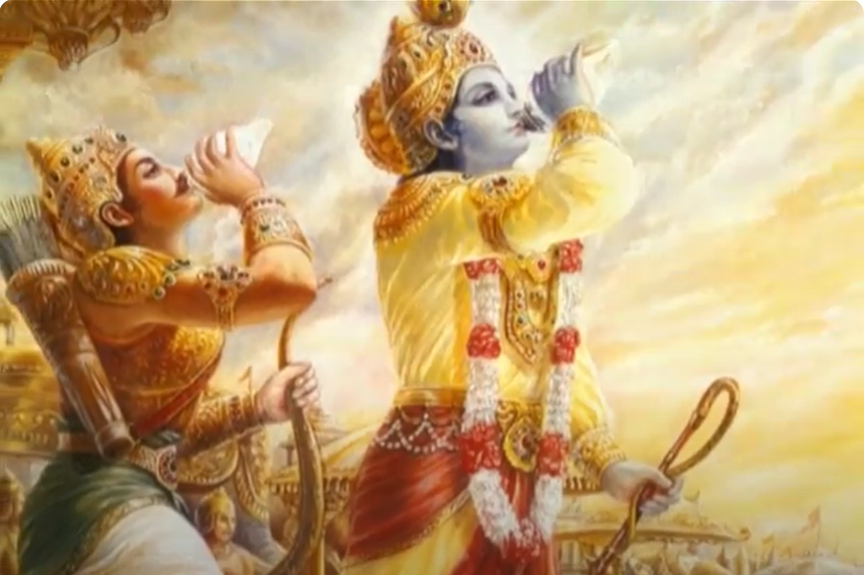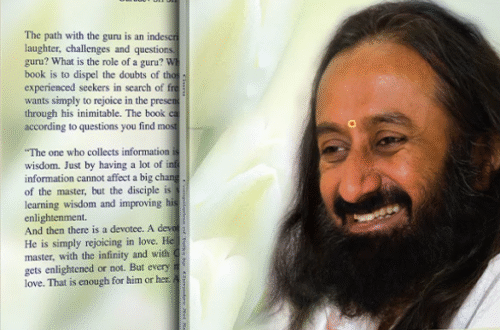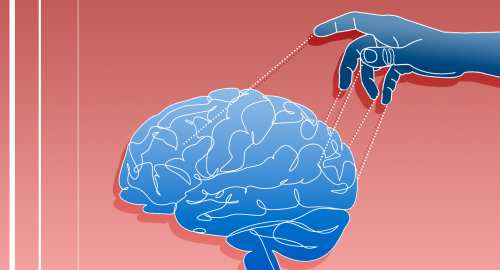Recently my mother was browsing for some information related to her favorite book Bhagavad Gita on an online video platform and the major chunk of search results were titled ‘Podcasts’. This led to her asking me “Nived, What is a podcast?”
It’s a straightforward question. Seems like everyone has a podcast these days. Now chances are high that this is not something new to you. You might be a regular podcast listener/viewer. Whatever the medium may be—audio or video—one thing is for sure: podcast culture has been growing rapidly in our country over the past few years. The topics range from business, politics, spirituality, sports, health, entertainment, gossip, and relationships, among others.
Coming back to my mom’s question. This is how our conversation regarding podcasts unfolded.
Mom : “Nived, What is a podcast?”
Me : “Well Amma, a podcast is where 2 or more people have a conversation/debate/discussion/QnA session regarding a common or multiple topics.”
Mom : “Nived, 2 or more people having conversation/debate/discussion/QnA session regarding a common topic or multiple topics is not something new. People have been doing it since ages. Then why call it a podcast?”
Me : “Yes you are absolutely right amma. People have been debating/discussing and asking questions on various topics since ages but we can term them as private conversations and not podcasts. The world doesn’t have access to every private conversation that has happened between people. The difference between a private conversation and a podcast is that the podcasts have been recorded in an audio/video format and is available to be accessed by everyone in the world.”
Mom : “Who told you that conversations from the past have not been recorded? Many valuable conversations from the past have been recorded in the form of texts/books.”
Me : “Only a few texts have been recorded and that too in the form of text/books whereas there are thousand of audio & video recordings available online these days about a large number of topics.”
Mom : “Just because there is quantity doesn’t mean that there is quality. Not all conversations/discussions are worth listening to.”
She definitely had a point! While there are good podcasts out there, there are an equal number of podcasts that are downright useless. I once had the pleasure of wasting two whole hours on a podcast about absolutely nothing. The panelists were just gossiping, throwing around insults, and doing a stellar job of wasting everyone’s time. Not a single useful thought was shared—and yet, somehow, that masterpiece had millions of likes and comments. Meanwhile, genuinely valuable podcasts? Barely a few hundred likes.
I pondered over what my mom told me and asked her the following;
Me : “Then what according to you would be a great podcast from the past?”
Mom (with enthusiasm in her voice) : “BHAGAVAD GITA”
Me (with a surprised expression) : “How can Bhagavad Gita be a podcast Amma? A podcast can be people discussing about Bhagavad Gita and not the Gita itself.”
The Bhagavad Gita isn’t new to me or my mom. We’re both spiritually inclined and have read various commentaries on it, but I had never thought of experiencing the Gita as a podcast.
Mom : “Why can’t it be? Look at the definition of podcast that you gave me and draw parallels. Bhagavad Gita is a conversation between two people, has question and answer sessions just like podcasts and has debates just like podcasts.”
She had a valid point! I couldn’t argue with her further but the conversation remained in my mind throughout the day. In fact if you looked at it, Gita is not just any regular podcast. It is a podcast where a confused warrior Arjuna is asking hundreds of questions to Bhagavan Shree Krishna and in response he answers all his questions patiently.
Can Bhagavad Gita be called a ‘PODCAST’ ?

Bhagavad Gita definitely deserves to be called the ‘Ancient 3000 to 5000 year old podcast‘.
With newfound excitement, I searched online to find every bit of information I could about this ancient podcast. I wanted to understand what people were saying about this treasure trove of wisdom. After going through a long list of articles, forum discussions, and videos related to the Gita, I realized that while almost everyone owned a copy of the Bhagavad Gita, very few had actually read it.
3 reasons people avoid reading the Bhagavad Gita
- A common belief that one must first study Sanskrit in order to understand the Gita.
- The perception that the Gita is too philosophical and not beginner-friendly.
- Confusion over the accuracy and authenticity of various interpretations.
With regards to Point #1, the solution was straightforward. Search for the availability of Gita in one’s mother tongue as the market is filled with translations in multiple Indian languages. But people still didn’t read it due to Point # 2 and 3.
My goal was clear. I wanted to suggest a beginner friendly version of Gita that would explain difficult concepts in a very simple and concise way without compromising the accuracy or loosing it’s philosophical meaning. And it should be available in both text and audio format.
The answer was evident to me after going through multiple book reviews online. I had read this book couple of years ago but never realized that people were raving about it on social media. The simplest explanation of the Gita I’ve come across is in a book titled The Bhagavad Gita by Eknath Easwaran. It seems the author wrote it with first-time readers in mind—those who would appreciate being gently guided into the world of the Gita, which he successfully did. I remember reading his version and feeling that the Gita is less intimidating than I made it out to be in my mind.
So here it is.
The Bhagavad Gita by Eknath Easwaran
This book is Ideal For:
- First-time readers with no background in Hindu philosophy.
- Readers who prefer simple English language. No prior knowledge of Sanskrit needed.
- Those looking for practical steps on how to apply Gita’s teachings to daily life.
- People going through a tough time in their life.
- Students and professionals who want mental well-being to achieve their goals.
- People who can’t take difficult choices in life, career, or relationships.
- People looking to develop leadership qualities.
- Spiritual seekers across all religions.
- People interested in knowledge about meditation and Yoga.
- Anyone pursuing inner peace.
The most common myth about the Gita
One of the most common myths about the Gita—and spiritual texts in general—is that they are meant to be read only in old age. Many believe that only after chasing careers, building families, and collecting material success does one earn the right to open a spiritual book. This couldn’t be further from the truth.
Is the Gita useful for everyone?
The Gita is a manual for life. It is to be read when you are faced with issues in your student life, career, relationships and daily living. Whether you’re 15 or 80, a student, a professional, a parent, or a spirituality/meditation enthusiast – the Gita will give you enormous power to face life’s challenges and emerge victorious. I encourage readers of all ages to begin their journey with the Bhagavad Gita as early as possible.
Just as we rely on instruction manuals to understand how to operate the tools and technologies around us, the Gita serves as a user manual for managing our mind, emotions and actions.
Conclusion
Imagine having Bhagavan Krishna as your personal charioteer who helps you achieve clarity in your mind to take correct decisions in your life. That’s what the Gita offers. So don’t wait for the old age. The best time to begin reading/listening to the 5000 year old podcast is now.
Regards





Wonderful read…I keep waiting for your next masterpiece. A very interesting conversation and observation. Aunty cleverly pointed out that Bhagwad Gita is akin to podcast. Keep writing such interesting articles.